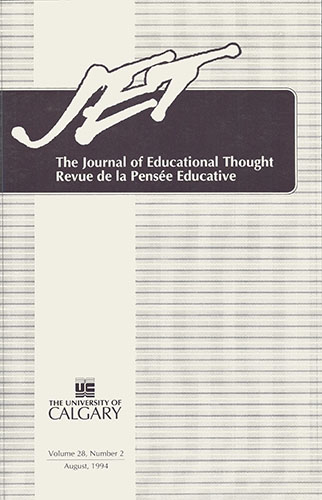Two Liberal Trajectories of Civic Education: The Political and Educational Thought of Hobbes and Winstanley
DOI:
https://doi.org/10.55016/ojs/jet.v28i2.52359Abstract
The moment of the English Civil war marks a historical turning point toward the establishment of modem liberal democratic institutions. The authors argue that at this juncture there were two political and educational alternatives offered by Thomas Hobbes and Gerrard Winstanley respectively, which constitute two liberal trajectories. The Hobbesian trajectory is based upon negative liberty and state sovereignty which renders an educational approach in comparative tension between the demands of liberty and those of conformity. The Winstanley trajectory is premised upon positive liberty and a communitarian and democratic notion of sovereignty which renders an educational approach devoted to the cultivation of independent civic judgement grounded in community life. The authors argue that while both trajectories have flaws Winstanley's thought is pregnant with greater democratic possibility
Downloads
Downloads
Published
Issue
Section
License
The Journal of Educational Thought retains first publication rights for all articles. The Journal grants reproduction rights for noncommercial educational purposes with the provision that full acknowledgement of the work’s source be noted on each copy. The Journal will redirect to the appropriate authors any inquiries for further commercial publication of individual articles. All authors wishing to publish in JET will be asked to fill in and sign a Consent to Publish and Transfer of Copyright agreement.
Authors must affirm that any submission to JET has not been and will not be published or submitted elsewhere while under considration by JET.

